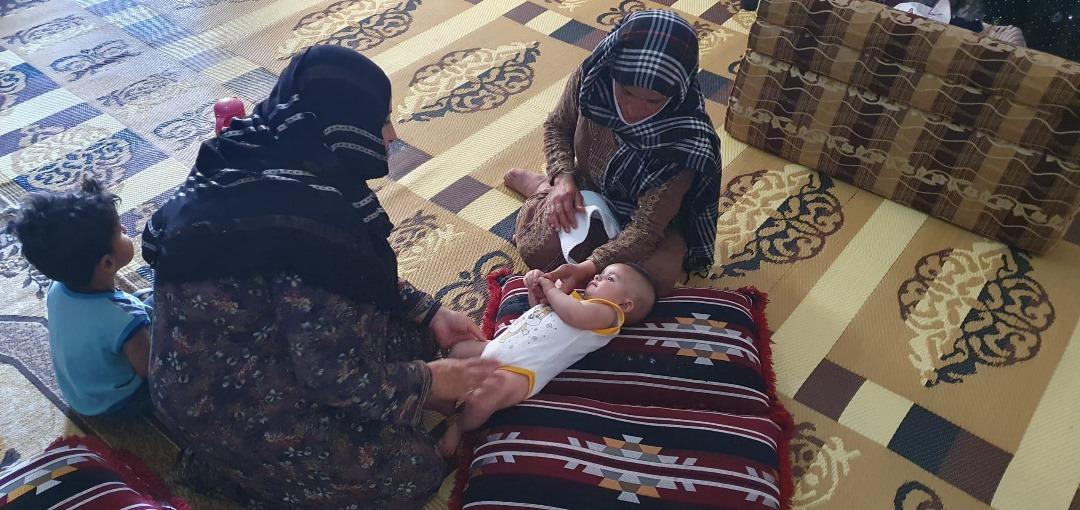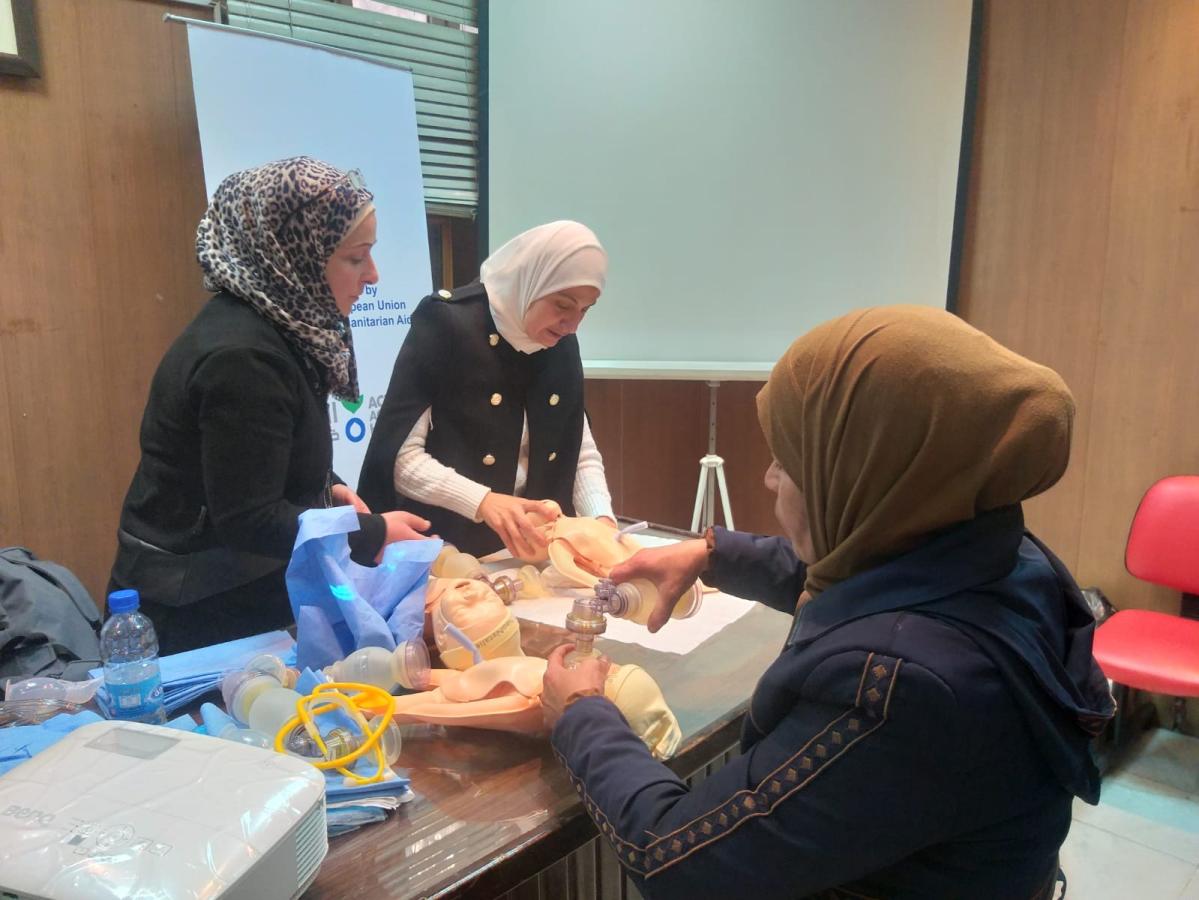

Syria: The Life-Saving Power of Midwife Training
Um Ibrahim is a young mother of four daughters and two sons, and she was pregnant with her seventh child, Alaa Aldeen. They live in a remote village. Her husband is the sole breadwinner for the family. He works as an agricultural daily laborer, earning just over one US dollar a day.
Their village lacks health services, except for one midwife, Khawla, who participated in the Basic Emergency Maternal Obstetrics and Newborn Care (BEMONC) training, conducted by Action Against Hunger (ACF) and funded by the European Union, couple months ago. The training aimed to enhance the midwives' existing expertise and enrich their knowledge and skills with new information and practical experience. It covered a variety of topics essential to any midwife's role, starting with pregnancy care. In addition, the midwives have been trained on malnutrition in pregnant and breastfeeding women, safe childbirth, postpartum care, and many other topics.

"One day, while my husband was at work, I experienced severe pain, and labor began intensely. I called my husband to come home quickly with the midwife. They arrived half an hour later as the pain steadily increased," recounted Um Ibrahim.
"When we arrived, I conducted a quick examination and found the cervix was greatly dilated, about 7 cm. The umbilical cord had come out before the fetus, cutting off the fetus's nutrition and oxygen due to pressure on the cord. Based on my training, I knew she needed to be referred to the nearest hospital for a cesarean section," explained Khawla.
The father urgently sought a car to take them to the nearest hospital, about 40 km away. The driver demanded a high fee due to the rough road, which the family could not afford. Khawla left the house, trying to figure out another way to go to the hospital. When she returned, she noticed something alarming happening inside. "When I came back, I saw something suspicious. Abo Ibrahim, his eyes full of tears, told me that the baby was born without any sign of life; he wasn’t crying or breathing.”
“I quickly used a stethoscope to check for a heartbeat and, thank God, it was there. I remembered the training on the golden minutes in a newborn's life and performed pulmonary resuscitation. I put my mouth on the baby's mouth and blew air while gently pressing the chest. After about a minute, which felt like an eternity, the baby started crying. We all cried with relief," said Khawla proudly.
“Indescribable moments passed in slow motion as I watched Khawla try to resuscitate my baby, but nothing compares to the happiness I felt when I heard him crying. It was the happiest time ever,” said Um Ibrahim with tears in her eyes.
Now, nearly three months old, baby Alaa Aldeen is in excellent health and suffers no consequences from the birth complications. "This isn't the first time I've thanked ACF. You brought water to our village and now you've saved my son's life. Thank you, ACF, again and again," expressed Abo Ibrahim.
Khawla emphasized the importance of such training, "I’ve had to deal with this twice before, and both times it went very badly, unlike Alaa Aldeen’s case. So, I do believe It's not just about gaining new knowledge but saving lives. Keep up with these trainings."
